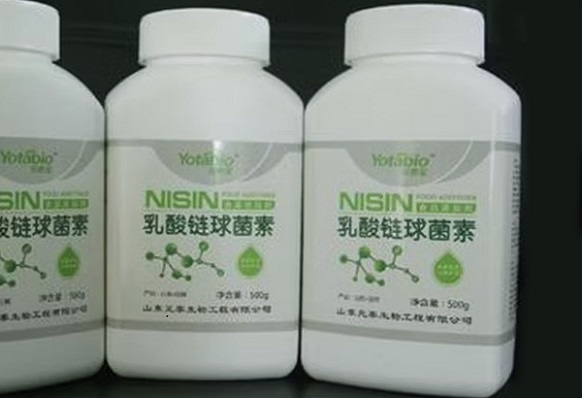Nikhil Prasad Fact checked by:Thailand Medical News Team Oct 07, 2025 4 months, 1 week, 59 minutes ago
Medical News: Ancient Food Preservative Shows Promise Beyond the Kitchen
For decades, the antimicrobial peptide known as nisin has been used safely in food preservation. Now, scientists from the University of California San Francisco, the University of California Los Angeles (UCLA), and the Chan Zuckerberg Biohub – San Francisco have discovered that this simple compound may help protect human cells during SARS-CoV-2 infection. The findings reveal that although nisin does not block the virus from multiplying, it helps host cells stay alive longer, potentially reducing tissue damage caused by COVID-19.
 Natural Antimicrobial Nisin Promotes Host Cell Survival Against COVID-19
Understanding How Nisin Interacts with COVID-19
Natural Antimicrobial Nisin Promotes Host Cell Survival Against COVID-19
Understanding How Nisin Interacts with COVID-19
According to this
Medical News report, the research team—led by Dr. Yvonne Kapila, Dr. Anita Sil, and colleagues Bevin English, Allan Radaic, and Pachiyappan Kamarajan—tested how nisin interacts with SARS-CoV-2 in laboratory conditions. The researchers initially believed that nisin could stop the virus from entering cells because earlier computer models had suggested that it might bind to ACE2 receptors—the same receptors the virus uses to infect cells. However, laboratory tests revealed that nisin did not reduce the viral load of either the original Wuhan strain or the Delta variant.
Instead, what the team found was even more intriguing: nisin-treated cells were more likely to survive infection. The protective effect increased with higher doses of nisin and longer exposure. Treated cells showed fewer signs of viral damage—such as rounding or detachment—and a noticeable reduction in cell death compared to untreated infected cells.
How Nisin Protects Cells from Death
To understand why the cells survived, the researchers used special staining methods to distinguish living from dead cells. They discovered that nisin did not make uninfected cells multiply faster but instead seemed to block or delay the process of cell death during infection. This finding suggests that nisin may trigger molecular pathways that make cells more resilient or less likely to self-destruct under viral stress.
Nisin’s known anti-inflammatory and immune-balancing effects might also play a role. Previous studies have shown that it can reduce harmful inflammatory molecules while increasing protective ones like IL-10. Since severe COVID-19 is linked to inflammation and massive cell death in the lungs and other tissues, nisin’s calming influence on immune signaling could help limit such damage.
A New Path for COVID-19 Therapies
The researchers believe that nisin may work best as part of a combined treatment—helping the body protect its own cells while other drugs focus on stopping viral replication. Because nisin is already approved by the World Health Organization (WHO) and U.S. Food and Drug Administration (FDA) as a safe food additive, exploring its medical use could move faster than developing a brand-new drug.
While further animal and human studies are needed, this discovery opens a new door in the search for safer COVID-19 treatments. It also reminds us that sometimes, nature’s oldest compounds can hold the key to solving modern medical challenges.
The study findings were published in the peer reviewed Virology Journal.
https://virologyj.biomedcentral.com/articles/10.1186/s12985-025-02921-5
For the latest COVID-19 News, keep on logging to Thailand
Medical News.
Read Also:
https://www.thailandmedical.news/news/sars-cov-2-orf6-protein-found-to-kill-human-brain-cells-by-damaging-mitochondria
https://www.thailandmedical.news/news/s1-spike-protein-of-covid-19-virus-triggers-neuron-death
https://www.thailandmedical.news/news/understanding-the-relationship-between-viruses-and-cell-death
